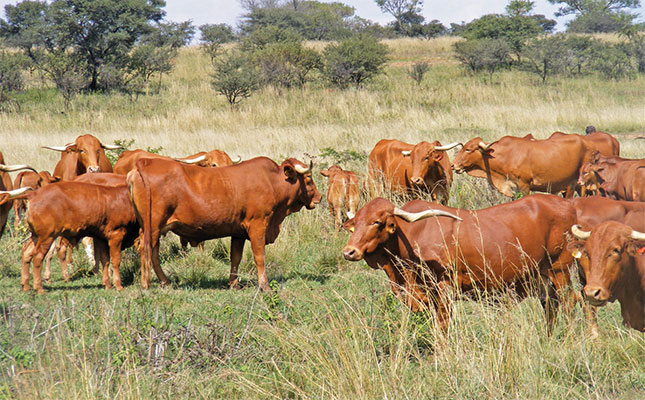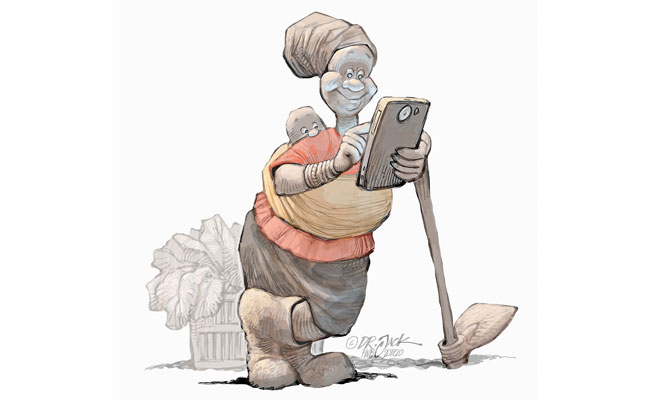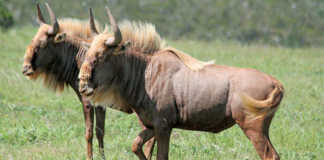
Photo: FW Archive
In a world that sees high-tech money laundering and cyberattacks, one scourge has remained unchanged since ancient times: stock theft. The crime has certainly kept up with inflation, though. The Red Meat Producers’ Organisation (RPO) has calculated that stock theft in South Africa last year cost farmers R1,4 billion.
According to the South African Police Service (SAPS), 26 036 sheep, 16 379 goats, 15 977 head of cattle, 4 956 chickens, 695 pigs, 323 horses, 148 game animals, 61 donkeys and 35 ostriches were stolen between October and December 2021. And this appears to be just the tip of the iceberg. Statistics South Africa (Stats SA) estimates that more than 70% of all livestock thefts are not reported!
With these figures, it is easy to understand why Dr Witness Maluleke, a senior lecturer at the University of Limpopo’s Department of Criminology and Criminal Justice, said in a research paper that stock theft had the ability to cripple resource-poor livestock farmers, as well as cause distress.
“The impact of livestock theft is mainly economic, but the emotional impact on the victims cannot be ignored,” Maluleke wrote in the International Journal of Business and Management Studies. “The crime affects the business enterprises of livestock producers, irrespective of whether they are commercial farmers or small-scale farmers, and it is the largest obstacle to sustainable livestock production and food security.”
In short, farmers need all the help they can get to combat livestock theft. This is where DNA sampling comes in.
Criminal deterrent
Dr Pranisha Soma, a researcher at the Agricultural Research Council’s (ARC) Animal Production Institute in Irene, told Farmer’s Weekly that the ARC had offered DNA profiling since the mid-1990s. However, the technique had been given wings since the ARC teamed up with the Gauteng Department of Agriculture and Rural Development a few years ago to help smallholder farmers in the western parts of Gauteng sample their animals.
Gauteng might be known for its gold mines, with agriculture contributing only 1% to the province’s GDP, according to Stats SA’s 2017 census, but beef production is an important economic activity here. In the same year, a total of 677 789 head of cattle were sold in the province.
“In the past, producers had to pay to get their animals sampled,” explains Soma. “However, through this project, the department carries the R15 cost of every sampling kit.”
She adds that the department decided to undertake this venture because of the high incidence of stock theft in the area.
The process is simple. The ARC team visits farmers, escorted by the police, and hands out kits. A farmer then simply provides a hair sample, taken from the relevant animal’s tail, and this is kept by the ARC until needed in a stock theft case.
“The project has had immense success. You won’t believe to what extent stock theft incidences declined just through the police presence and the community becoming aware of the fact that DNA samples were being taken.”
Unfortunately, the advent of COVID- 19 proved a major setback for the programme.
“We lost many farmers due to the pandemic,” says Soma, adding that with the lockdowns, the ARC team had to temporarily cease its physical work within the community.
In addition, many farmers took test kits from the ARC initially, but failed to return them.
“This was a major setback, as the project relies heavily on farmer engagement,” says Soma.
The ARC communicated this dilemma to the department, and it was decided to extend the timeline of the project as well as expand it to the Rust de Winter, Sedibeng and Hammanskraal regions of the province. Another hurdle that the team faced in western Gauteng was farmers’ reluctance to share personal information. Nonetheless, the researchers managed to win the trust of many farmers and gather the necessary information.
The researchers learnt much from this region and, applying these lessons, have already had greater success with compliance in Rust de Winter, Sedibeng and Hammanskraal.
“The involvement of these other municipalities was also great,” says Soma. So much so, that the national Department of Agriculture, Land Reform and Rural Development has taken a decision to roll this project out to different areas of the country.
The DNA kits are stored in secure facilities at the ARC. Once it is needed in a stock theft case, the relevant kit is pulled and a full DNA test conducted. This currently costs R150/kit, according to Soma.
Despite all this work, few DNA cases end up in court. “The criminal justice system is quite slow. You wouldn’t believe it, but sometimes it can take three years for a case to come up and only then will they send a subpoena [for laboratory evidence].”
Soma says that, on average, the ARC prepares evidences for around 10 court cases a year.
“It takes a lot of planning and logistics, and unfortunately there are a lot of costs involved with a stock theft case. Fortunately, the cost of having a representative of the ARC attending a hearing is covered by that specific stock theft unit or police station. But it’s very frustrating to go through all that trouble, only to have the case postponed.”
Once again, COVID- 19 threw a spanner in the works: lockdowns created such a backlog that the research team did not present any cases in court.
Research
In 2016, Maluleke studied DNA tests’ success in terms of combating stock theft in KwaZulu-Natal. As part of his research, he interviewed 15 police officers assigned to stock theft units in the Pietermaritzburg, Ladysmith and Newcastle regions of the province.
The study found that emerging livestock farmers viewed DNA sampling as being very expensive. However, it revealed that DNA technology provided irrefutable proof of wrongful convictions in the past, as well as invaluable links to the actual perpetrators of crimes.
“Animal DNA is as personal as a fingerprint, and DNA collected from a crime scene can either link a suspect to evidence or eliminate a suspect,” says Maluleke.
He used the information to compare evidence from one crime scene with that from others, which enabled him to link crimes nationwide, thereby providing valuable criminal intelligence to police. The evidence could also be used in court.
“The principal link between DNA technology and livestock farming lies in the combating of stock theft, a scourge that is not sufficiently addressed by conventional methods,” Maluleke wrote.
A long process
Willie Clack, chairperson of the National Stock Theft Prevention Forum, says the biggest drawback of DNA testing is the fact that it’s a long, drawn-out process. “Yes, it’s easier to establish ownership with DNA samples, but it’s not a quick process.”
Farmers should rather regard DNA as a second-tier tool in stock theft prevention on top of radio frequency identification (RFID) tagging, branding and tattooing their animals.
“DNA testing is also costly. It makes sense for a stud breeder to sample and store DNA samples of his or her animals, but for a smallholder farmer, it might not be cost-effective,” he says.
Clack advises farmers to shop around and familiarise themselves with the costs involved before deciding whether or not to sample their animals.
Soma says that besides the ARC, there are several other private institutions, such as Unistel Medical Laboratories and ZooOmics, that offer DNA services.
“There’s a lot of livestock in South Africa. Last year, the ARC sampled 4 500 animals, and we didn’t put anybody else out of business.
“Some of the private laboratories might have sampled even more.”
She points out that farmers have different needs, and various laboratories offer different options.
Hereditary defects
Through its DNA Parent Profiling Service, the ARC helps cattle and horse owners establish or confirm lineage and determine if an animal has any hereditary defects. This is especially useful for stud breeders.
As an example, Soma says the Appaloosa Horse Breeders’ Society of South Africa bought DNA kits for nearly all animals registered under the breed name.
“These kits are kept in storage, and whenever the society decides it requires parental verification, the relevant barcode number is submitted and a sample is requested.” Only then will the DNA be processed and the result given to the society.
“This really is a reliable and affordable storage system,” says Soma. Instead of having to pay for the processing of hundreds of DNA samples, owners only pay for the relevant samples.
In addition to collaboration with local laboratories, ARC’s profiling system adheres to international standards, and the ARC team works with international laboratories, such as those at the universities of California and Kentucky in the US, from time to time. They are thus able to confirm parentage in different locations.
This comes into play in instances where semen or embryos are exported.
“Obviously, the parent animal will still be in South Africa. We’re able to compare the parent’s DNA with that of the offspring,” says Soma.
Besides establishing genetic heritage, DNA sampling is also a means of ensuring quality control. The ARC participates annually in the quality control tests of the International Society of Animal Genetics to ensure that it remains globally competitive.
“They send us unknown DNA and our laboratory then processes the genetics and submits the results for evaluation. Based on this, we then receive feedback to know how we performed compared with the rest of the world.”
Through this, she adds, the management team knows how to adapt to remain globally and locally competitive.
Email Willie Clack at [email protected], Dr Pranisha Soma at [email protected], or Dr Witness Maluleke at [email protected].










